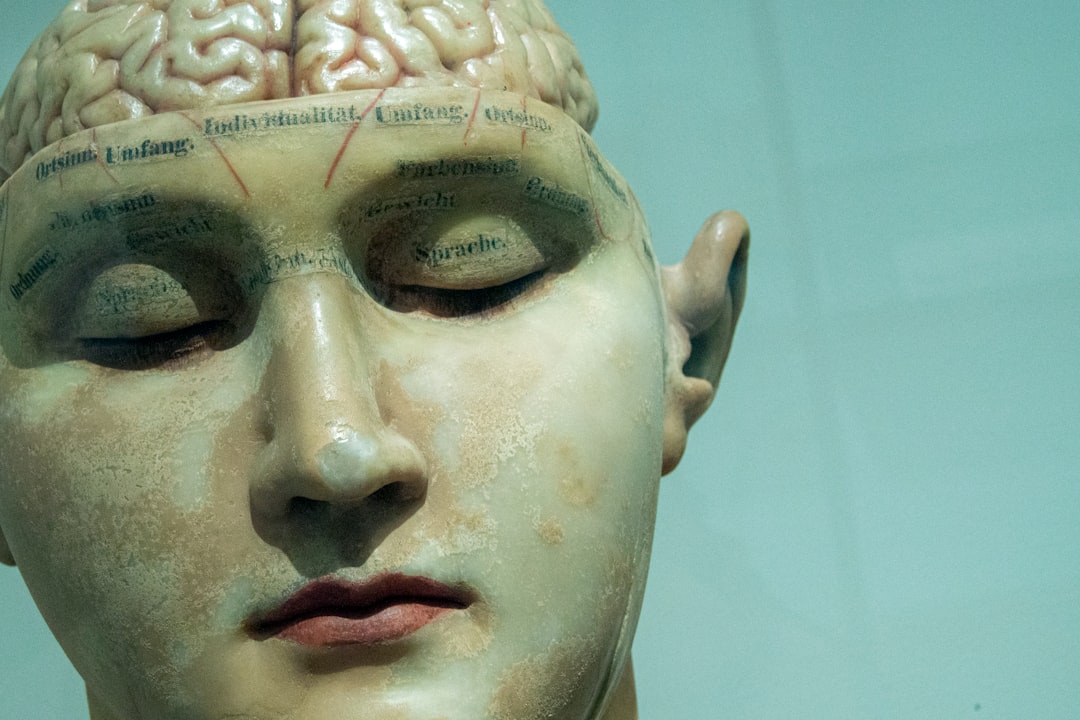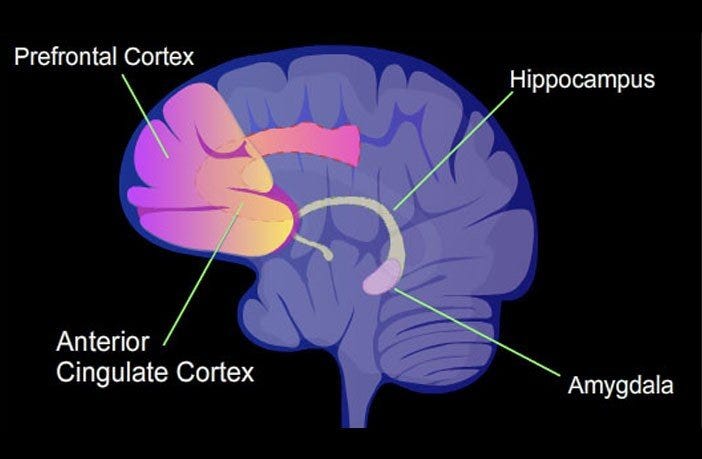
Whatever you do, you must never let the voice in your head control the brain in your heart. ~Steve Jobs
The tendency to think with our hearts rather than our heads is common, especially when emotions are involved. But science has taught us that both actions, thinking and feeling, originate in the brain.
So, why do we associate the heart with emotions?
The quick and dirty answer is that the heart was once thought to be the center of all thought processes, not the brain. Therefore, ALL emotions were associated with the heart.1
When Googling ‘expressions using the word heart,’ I discovered 70 idioms on the Daily Writing Tips. Interestingly, they all referred to something that requires thinking and opinion, which evokes many feelings. Some examples:
Bleeding heart
Broken heart
Didn’t have the heart
Faint of heart
Heavy heart
Heart’s desire
I certainly made the mistake of thinking with my heart as a younger person. Childhood and adolescence lay the foundation for the rest of one’s life. If parents don’t adequately prepare children for the changes they’re about to undergo, they will likely struggle.
At a time when appearance is everything, my early adolescence bestowed acne and kinky hair. Mom lamented the skin issue with me, saying she and her mother had the same problem. My once thick, straight hair suddenly got ‘wavy’ (as grandma liked to call it), another change I hated. Mom took me to the dermatologist to try to resolve the skin eruptions, and I remember her ironing my hair on her trusty ironing board (which I still have today). That was long before straight irons were invented.
Growing up is hard, and kids are cruel. If I could return to a particular time, it sure wouldn't be adolescence!
While Mom tried to help with the obvious physical changes, she never discussed the emotional stuff like sexuality, other than preparing me for the onset of menstruation. She didn’t guide me on what I could expect in the upcoming years with all those feelings! Open communication about sensitive subjects made her uncomfortable, so they didn’t happen.
My parents weren’t unified in their approach to parenting. Mom was the permissive type, and Dad was authoritarian.2 This led to some real conflicts at times. Dad wasn’t home much, so we had a lot of freedom, and when he was at home, we walked on eggshells. During my teenage years, that freedom continued, and I made bad choices without boundaries.
I also had low self-esteem, which contributed to the problem. I wasn’t thinking; I acted according to my positive and negative feelings and wherever the crowd led me.
Reading how the brain processes these emotions, I realized how my life was impacted. ⬇️
Parts of the Brain
The regions activated by positive thinking are the amygdala and the rostral anterior cingulated cortex (rACC). Rostral refers to the area toward the nasal or oral area. These two parts are located deep in the middle of the brain. The amygdala detects stress, while the rACC has several complex cognitive functions, such as empathy, impulse control, emotion, and decision-making.3
A study done at New York University measured the level of optimism of 15 volunteers through a simple questionnaire. They were asked to imagine positive and negative scenarios and the subsequent brain activity was measured through functional magnetic resonance imaging (fMRI).4
Those with positive thoughts produced a more dramatic response in the amygdala and rACC. However, autopsies done on severely depressed patients revealed fewer cells than normal in these same regions. This explains the absence of positive thoughts in those despondent people.
The Happy Brain
Positive thoughts develop in the prefrontal cortex (see diagram above.) This area is also responsible for:
Planning, problem-solving, decision-making, and self-control.
Positive thoughts induce brain growth through reinforcement and the generation of new synapses.
A positive outlook improves the ability to pay attention, focus, and solve problems.
The Unhappy Brain
The following are ways that negative thinking affects the brain:
This leads to decreased cognitive functioning, causing the limbic system to overtake the prefrontal cortex and direct energy away. (The limbic system, aka the reptilian brain, consists of multiple parts, with the amygdala regulating emotions like fear and aggression.) This causes confusion and unclear thinking. The antidote is to do challenging cognitive activities like puzzles and number games. This sends the crucial energy back to the prefrontal cortex.
Immune system suppression: High alert causes overuse of all systems and energy normally devoted to maintaining strong immunity.
Causes physical symptoms such as anxiety, racing heart, and fast breathing, which are the classic ‘fight or flight’ responses.
When negative thinking is recurrent, it causes the rewiring of certain associations to fast-track those unpleasant emotions.
Negative emotions like anger and hostility lead to a higher risk of stroke. Unfavorable emotions activate the hypothalamic-pituitary-adrenal (HPA) axis, a built-in stress response. These changes in neuro and endocrine systems lead to risk factors for stroke.
Number one on the list above explains why I felt so isolated and unable to make changes. My alcoholic husband gaslighted me every day and contributed to the doubt I felt about leaving him.
Number four really jumped out of my memory. Hearing his truck pulling into our gravel driveway caused my blood pressure to jump instantly. Sounds such as the tab being pulled on the fifth beer can and his slurred speech also provoked a reaction.
It’s important to understand the physical and mental damage that is done by addiction in any family. If you’re living under these circumstances, please know help is available.
Don’t be afraid to reach out. Continuing on in the hope that he or she will change is more damaging. Unless they seek professional help, they most likely won’t change. Therefore, you must.
Thanks for reading Life Matters!
NEXT WEEK: Brain Chemistry & Hormones
If you know someone who could benefit from this post, please SHARE. If you have experience living with an addict, please COMMENT. You’re feedback, and encouragement is so important to others.
Life Matters is a reader-sponsored publication (No ads or affiliate links). I’m working hard to reach more people and could use your help. Please consider supporting my efforts. Thank you.





This was way better that I expected from the title. Thanks for posting!
Wow, so many of these resonated with me, a couple that affected you, also. Having 'learned' to cope with life using my reptilian brain by default has caused so many issues in my life. And this really dictated so much of why I did or didn't do what might have made things so much easier transitioning. I got off track and it took years to pass the other end of extreme and learn that living uncomfortable was the key to getting back to balance where I should have started before adolescent years. It was in those formative years that things really affected me most of my life. Really good read, and it helped me think about things... and give myself a little break for not knowing any better, and doing the best I could to cope.